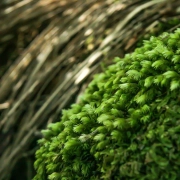As the sun casts its warm embrace over the verdant summer landscape, it seems to awaken something deep within us – a primordial impulse, if you will, that harks back to our evolutionary roots. And now, British researchers have discovered that this seasonal shift may hold the key to unlocking a long-elusive mystery: why women undergoing fertility treatments during the summer are twice as likely to become pregnant compared to their winter counterparts. Let us explore how we can harness this phenomenon and enhance it with fertility acupuncture.
In an intriguing study presented at the annual conference of the American Society for Reproductive Medicine (ASRM), Dr. Simon Wood and his team from the Countess of Chester Hospital in Ellesmere Port uncovered a curious correlation between longer daylight hours and improved chances of successful fertility treatment. Their four-year study examined more than 3,000 cycles of fertility treatment, comparing women who had undergone cycles in both the summer months of April to September and the winter season from October to March.
What they found was nothing short of remarkable: the pregnancy rate during the summer soared to 15.7 per cent, a stark contrast to the 7.5 per cent observed in the winter. Moreover, women in the summer cycles required lower doses of the drugs designed to stimulate their ovaries prior to having embryos transferred.
But what could possibly account for this dramatic difference? Dr. Wood and his team posited that the answer may lie in the phenomenon of photoperiodism – the biological response to changes in daylight length. This process, linked to the hormone melatonin, has long been known to influence the reproductive cycles of mammals, with conception more likely to occur during the summer months as it results in offspring being born in the spring, when food is more plentiful and the weather warmer, thus increasing their chances of survival.
Previously, experts believed that women undergoing fertility treatments were immune to the impact of photoperiodism, as the strong drugs they were given to stimulate their ovaries would override nature’s cues. They also assumed that melatonin, which regulates sleeping and waking cycles, acted exclusively through the pituitary gland, which is “switched off” during IVF cycles. However, this new research suggests that melatonin receptors throughout the reproductive system may play a far more significant role than previously thought.
While further research is required to understand the precise mechanisms behind these findings, one thing is clear: the sunlit path to fertility may well be illuminated by the radiant embrace of summer.
What is relevant to these findings is that, rain or shine, acupuncture has been shown to increase increase night-time melatonin. Through acupuncture, we can unlock the full potential of this sunlit path to fertility, marrying modern scientific discoveries with time-tested practices that have helped countless individuals for millennia. We advocate natural approach of boosting your chances of getting pregnant with lifestyle changes and natural fertility acupuncture. Because it is not only about conceiving. Ultimately it is also about the health of your baby and your long-term health.
During your consultation with us, we can discuss the ways of how to enhance the effect of nature on on your reproductive health and fully take advantage of the ancient wisdom of acupuncture.
The study was presented at the annual conference of the American Society for Reproductive Medicine (ASRM) and covered in NZHerald.


